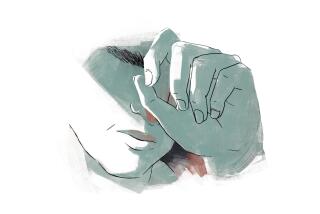AIDS Clinic Seeks to Serve Youths’ Needs : Health: New center is intended for those in their teens and 20s who often fail to get tested or do not pick up results.
- Share via
The first time Jaime Silva went to a clinic to be tested for AIDS, he never returned for the results. The second time, he fled in tears, unwilling to even venture past the waiting room.
“I knew I had to see someone. But I just couldn’t,” said Silva, who eventually mustered the courage to go ahead with testing--and learn at the age of 22 that he is infected with the virus that causes AIDS.
He is by no means unique. The preliminary findings of an ongoing Los Angeles County study indicate that as many as 10% of young gay and bisexual men may have the AIDS virus.
Those who are infected make up a group whose youthful sense of immortality clashes with their acutely mortal condition, creating a special set of challenges. They do not get tested to begin with. Or they do not pick up their test results. Or they drop out of treatment.
“We’re at risk of losing youth every step of the way,” said Juan Ledesma, director of health services at the Los Angeles Gay and Lesbian Community Services Center. “They think it’s just another bureaucratic system they don’t need to deal with. So they don’t come back.”
To counter that, the center is opening what it describes as the first HIV/AIDS clinic in the nation to serve teen-agers and young adults and to be staffed by young counselors. A small part of the overall AIDS services provided by the center, the new Pedro Zamora Youth HIV Clinic, will be open for testing and treatment two afternoons a week.
Named after a young MTV series star who died of AIDS, the Zamora clinic will be a place where youthful clients will be helped by people who sound, look and dress like them.
Certainly Silva, now 23 and a center client, would have preferred that to the environment he encountered on his first visit to a San Fernando Valley community health clinic. He sat with pregnant women in the waiting room and was quizzed about girlfriends by a physician who seemed stunned to learn that he had had sex with a man.
Although youth peer counseling is common in AIDS prevention work, the world of clinics remains largely one of adults. AIDS service providers Thursday warmly endorsed the center’s move to change that.
“It’s such a welcome thing,” said Stephen Soba of Gay Men’s Health Crisis Inc. in New York. Young people, he added, will be “more likely to be open to talking to people their own age and accepting certain facts which may be very hard to tolerate.”
According to the federal Centers for Disease Control and Prevention, more than 18,500 cases of AIDS in the 13- to 24-year-old age group have been reported since the beginning of the epidemic--or slightly more than 4% of the total AIDS cases.
The numbers are rising, particularly among young women and young racial minorities.
All this has left AIDS service workers struggling to get a population that has grown up in an era of AIDS to pay heed to their risk and seek treatment if they are infected.
“If there’s anything we’ve learned in this epidemic, it’s that knowledge [of AIDS] does not mean a person is going to change their behavior,” said Cesar Portillo of AIDS Healthcare Foundation in Los Angeles.
“It’s crucial that we break down every barrier, so they can maintain quality of life and remain healthy.”
More to Read
Sign up for Essential California
The most important California stories and recommendations in your inbox every morning.
You may occasionally receive promotional content from the Los Angeles Times.














